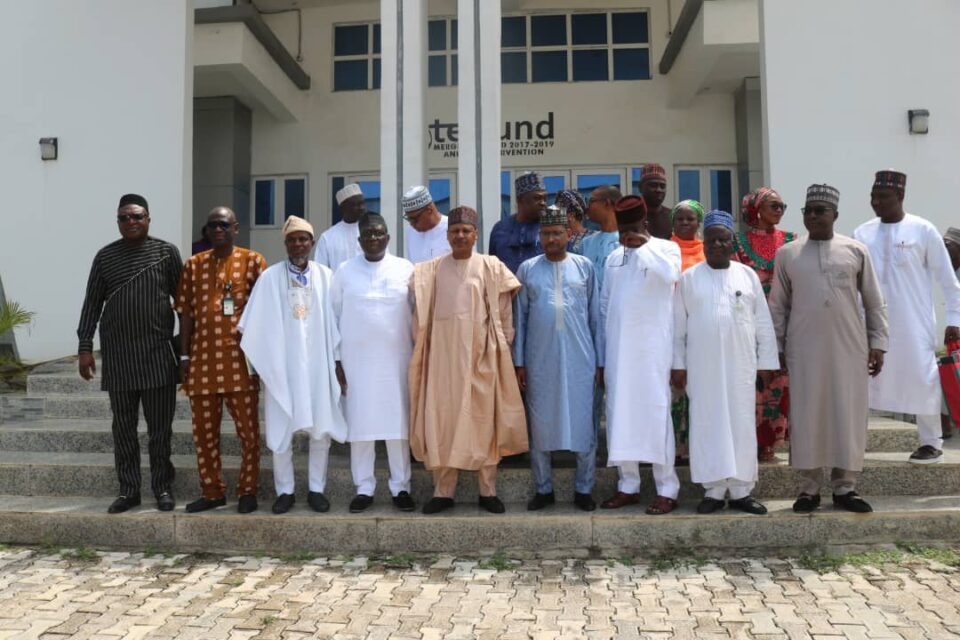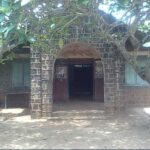By Felix Khanoba
The Federal Government has restated its dedication to combating the spread of misinformation, disinformation, and mal-information across Nigeria, emphasizing the importance of media literacy in equipping citizens to distinguish fact from falsehood.
Minister of Information and National Orientation, Mohammed Idris, made this declaration on Friday at a one-day symposium themed “New Digital Frontiers of Information, Media and Information Literacy for Public Interest Information” held at the National Open University of Nigeria (NOUN) headquarters in Abuja.
In a statement signed by NOUN’s Director of Media and Publicity, Ibrahim Sheme, the event was jointly organised by the International Media and Information Literacy Institute, NOUN’s Mass Communication Department, the Federal Ministry of Information and National Orientation, and UNESCO.
The symposium aimed to address the role of Media and Information Literacy (MIL) in an era increasingly marked by the proliferation of false information.
Idris emphasized the critical need for media literacy to foster responsible media usage that serves the public interest. He stressed the importance of collaboration among educational institutions, policymakers, and international organizations in building a well-informed society.
“A well-informed society is a strong and resilient society,” the minister noted. “This symposium marks an important step towards equipping Nigerians with the knowledge and tools to verify information and counter the spread of fake news.”
He further urged Nigerians to adopt a more patriotic outlook by promoting the country’s positive achievements rather than focusing on negative narratives.
According to the minister, media literacy plays a dual role—not only in curbing misinformation but also in promoting transparency, accountability, and civic engagement. He called on participants to view MIL as a means of fostering public trust, improving information integrity, and empowering citizens in today’s digital world.
Idris reaffirmed President Tinubu’s administration’s commitment to creating a media-literate society and lauded the symposium as a key step in advancing this mission.
In his opening remarks, NOUN Vice-Chancellor, Prof. Olufemi Peters, underscored the significance of media literacy in empowering individuals and shaping enlightened societies. Peters emphasized NOUN’s role as an Open and Distance Learning (ODL) institution committed to providing accessible education and promoting digital literacy at a time when misinformation is influencing public opinion.
“The digital age presents unprecedented opportunities and challenges,” Peters said. “As we embrace these changes, it is essential to empower every Nigerian, especially our youth, with the skills to navigate and responsibly engage with digital media.”
He also stressed NOUN’s commitment to advancing digital literacy through strategic partnerships and collaborative learning initiatives.
UNESCO’s Abuja Representative, Mr. Abdoulrahmane Diallo, highlighted UNESCO’s global initiatives to promote media literacy as a tool for empowerment and democratic participation.
“At UNESCO, we believe that media and information literacy is a fundamental human right,” Diallo said, reiterating the organization’s support for Nigeria’s MIL efforts. “In the digital age, MIL fosters critical thinking, social cohesion, and ultimately, the protection of our democratic spaces.”
Delivering her remarks, guest speaker Ms. Mardia Umar, a media personality from EFCC Radio, reflected on the challenges posed by digital misinformation in Nigeria. She emphasized the need for vigilance and community engagement in tackling fake news, which undermines public trust in key institutions.
“The spread of misinformation is a threat to national development,” Umar noted. “Through media literacy, we can empower people to discern credible information sources, recognize bias, and protect themselves against manipulation.”
She also highlighted the potential of digital tools in promoting accountability and called on institutions to leverage these tools to enhance public understanding on topics such as financial fraud and security.
Dr. Lateef Adelakun, Head of NOUN’s Mass Communication Department, expressed gratitude to participants, speakers, and partners for their contributions. He emphasized the importance of sustained collaboration in strengthening MIL frameworks across Nigeria.
“We are all ambassadors of information literacy,” Adelakun remarked. “Let’s use the knowledge gained today to help build a media-literate Nigeria.”


